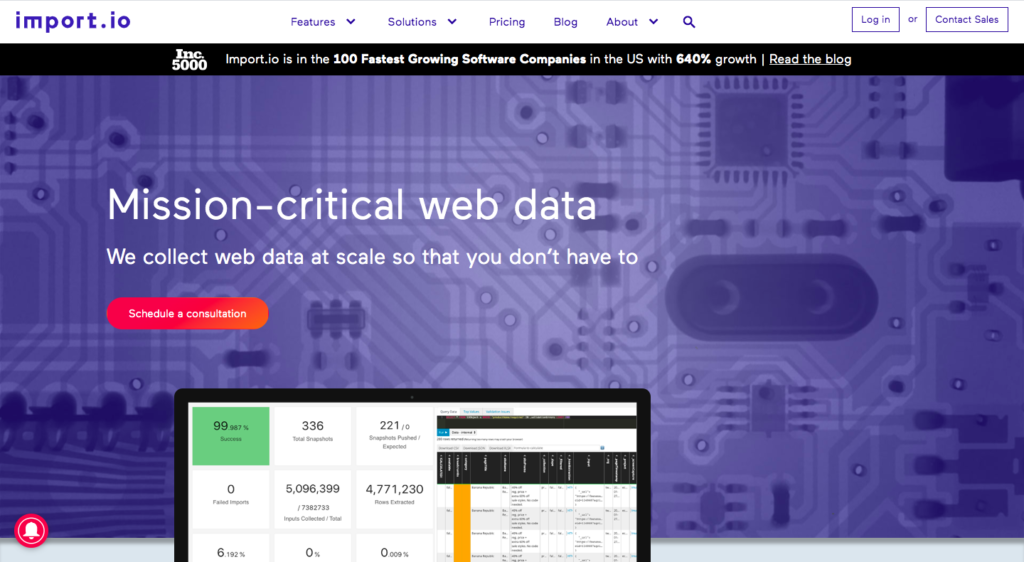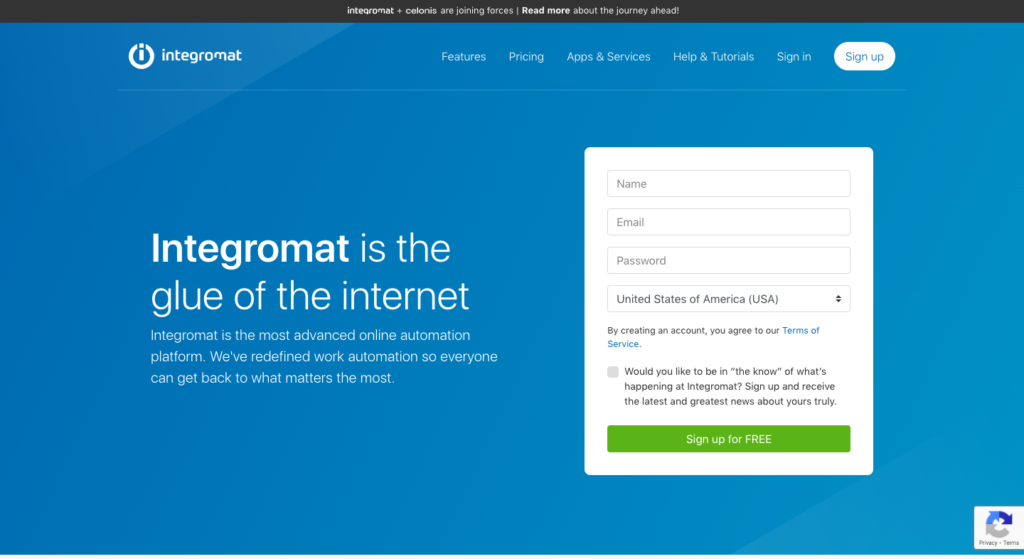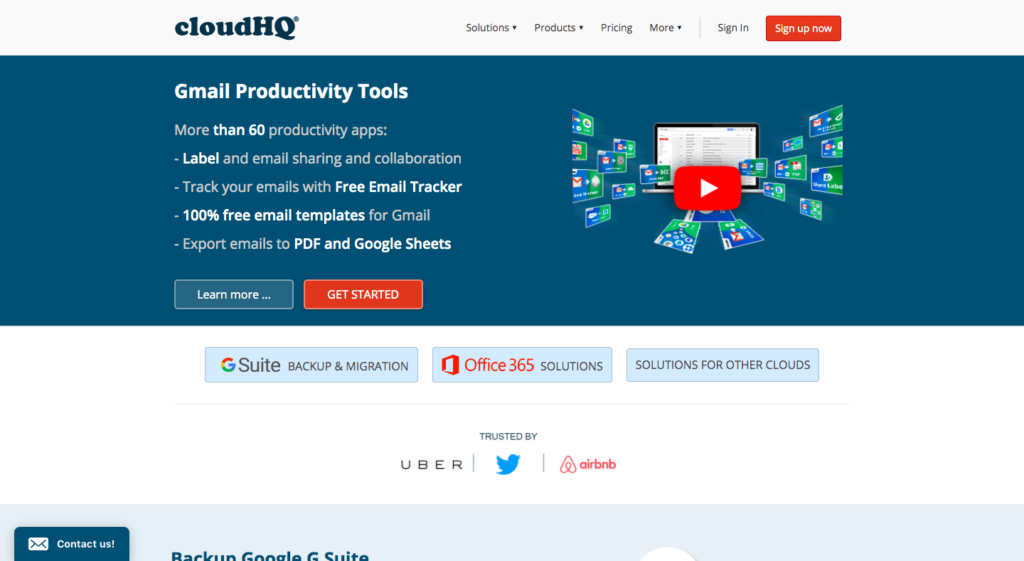Explosive Growth of Remote Work
According to 2018 American Community Service (ACS) data about 5 million American employees work remotely, a figure that amounts to roughly 3.6% of the American workforce. Experts originally estimated that remote work would gradually grow in popularity over the next few years, but the pressure placed on the workforce by the coronavirus sped up this timeline significantly.
Of all the temporary chaos and upheaval brought about by the worldwide pandemic of 2020, the job market–specifically in regards to its handling of remote work–will likely never go back to the way it was. While admittedly relying heavily on estimation, recent projections suggest that by the end of 2021–just a year from the writing of this article–around 25-30% of the workforce will work from home multiple days a week.
Building a Career around Remote Work
While current world events may have driven many individuals to work remotely against their wishes, there is no denying how smooth the transition was for many others. Throughout the transition to remote work in response to quarantines and social distancing guidelines, many companies saw productivity rates stay the same and in some cases productivity even increased.
Some people are just more comfortable at home. And many workers have more control of their environment than they would at a cubicle at the office. Being comfortable allows one to maintain focus and ensure you have an ideal workspace to maintain high levels of productivity. But let’s face it–a large portion of people just like making good money from home.
If you are one of the many people who got a taste of remote work and decided that there is no going back, then be prepared to make some career changes–as many career paths are more conducive to remote work than others. But don’t worry, we’ve done the leg work for you and have compiled a ranking of the highest paying remote jobs in business for the coming year of 2021.
30 Highest-Paying Remote Jobs in Business for 2021
- Chief Marketing Officer
Average Annual Earnings: $174,077
A chief marketing officer (CMO) is the figurehead of a company’s marketing operations, and their salaries reflect the seniority and prestige that comes with the title. A CMO directs all of the company’s marketing efforts. The CMO develops macro strategies of the overall direction of the brand or marketing effort of the company, creates a plan of action to bring this strategy to life in micro strategies and daily tasks, and then assigns these tasks to marketing employees.
Marketing professionals are masters of technology and communication, and so it should be no surprise that there is likely no better career for remote work. Emails, phone calls, and video conferences are tools of the trade in marketing. It just so happens these are the tools of remote work as well. If you want a career that is not hindered whatsoever by remote work, then a marketing career might be the ideal choice.
In fact, marketers might actually benefit from a commitment to remote work, as that keeps them flexible to pursue the type of work most important to their career goals. Particularly in the case of pursuing the CMO title, you will want to build knowledge and expertise in a specific area–and the flexibility of remote work gives you the ability to do just that.
- Director of Growth
Average Annual Earnings: $160,000
The director of growth position is similar to that of the CMO but without the singular focus on marketing efforts. That is, a director of growth is tasked with measuring the effectiveness of big-picture strategies and daily operations that are most conducive to a company’s growth and success. As such the growth director will work closely with marketing teams to ensure marketing efforts are bringing a return on investment, but they will also work with other departments as well.
In other words, a growth director is a professional business person whose expertise allows critical assessment of a company’s efforts–be they marketing, product development, or human resources. Because of this, a growth director is required to have extensive expertise in all the various components of business operations.
While this job varies drastically depending on the organization, the fundamentals of this role are ideal for remote work. As long as the growth director is able to communicate effectively with the necessary members of the company, much of the director’s responsibilities can be met by conducting performance reviews and analyses of data–that in most cases can be sent from anywhere.
- Full Stack Developer
Average Annual Earnings: $131,591
A full stack developer is a software developer or engineer who is able to take on both front-end and back-end development. In other words, a full stack engineer is able to tackle all the responsibilities of developing a website or application, while still being able to participate in high-level strategizing, planning, and optimization. In order to achieve this kind of flexibility, one needs to master more than a few programming languages including more basic languages like HTML and more complex like languages like C++.
Given the broad range of skills required in full stack development, job roles will differ drastically depending on the industry you choose to work in, and the direction of web or app development you choose to specialize in.
But regardless of these choices, the full workload of the full stack developer can be completed entirely while working remotely. Essentially anywhere that has an internet connection and allows you to take your work computer will work as an office for a programmer.
- Financial Manager
Average Annual Earnings: $127,990
A financial manager is a professional charged with monitoring a company’s financial wellbeing. Financial managers oversee daily operations and development strategies meant to correct any financial risk factors or simply to improve the bottomline. Given that nearly every conceivable activity of a company is connected in some way to its money, financial managers are interdisciplinary professionals who problem solve in a wide array of contexts.
These professionals direct a company’s investment efforts, conduct budget and performance reviews, and present plans for financial optimization. While a financial manager must be experienced with business in general, the bulk of their daily responsibilities are made up of statistical calculations, data analytics, and project management.
While a financial manager might need to make trips to company headquarters relatively often, the majority of work can be completed remotely. Some financial managers might never need to step foot in the company building to do their job successfully.
- Data Scientist
Average Annual Earnings: $122,901
Data scientists are researchers are researchers by nature and problem solvers by trade. In the modern world of Big Data, there are very few problems that cannot be explained or resolved entirely by the data available to us. Data scientists are the professionals tasked with seeking out said data, creating a strategy for collecting it, and then presenting it in an intuitive manner.
GIven these responsibilities, data scientists are interested in any tool, application, or technique which contributes to the finding, collecting, or organizing of data. Because of this many data scientists have expertise in programming, software engineering, and graphical design (as developing ways to present data effectively is often as important as anything else).
Given that the primary professional focus of the data scientist is data, these professionals are able to work wherever they please so long as they can access the tools and information needed. Even before the developments of the global pandemic, it was not uncommon for data scientists to hold jobs in another state while working remotely or at a company branch.
- Project Management
Average Annual Earnings: $116,000
Project management is the field of bringing ideas to life, and giving them form in actionable business plans. Project managers oversee projects of varying size–from the development of a new company product or service, to the development of a new company branch across the country. Whether overseeing plans big or small, a project manager is responsible for ensuring smooth culmination of them.
Project management will appear to be an entirely different career in the software industry than project management in the restaurant industry. For this reason, to become a qualified project manager you will need to develop experience in your desired industry, and will be expected to excel at both communication, business strategy, and business management tasks.
The real necessity of a project manager’s daily workload is to have an open line of communication with the company members and any employees working on the project of interest. Project managers must be plugged in to the progress and events of a project, which in today’s world of ubiquitous technology can be satisfied through sophisticated use of communication tools and messaging apps.
- Investor
Average Annual Earnings: $112,130
Professional investors are experts of the financial and business sectors. They have carved out a career by making their money do the heavy lifting, whether by investing in business opportunities or traditional investments such as those in the stock market. Some investors specialize entirely in stock trades, and focus on making their earnings through day trading efforts and consulting services.
Others investors focus more on the private sector, and invest in small businesses, real estate, or startups. Investors like these make their money from the returns on their business investments, and might incorporate investment consulting or financial advice into their wheelhouse.
A career in investment is a career in flexibility–in that one chooses where to invest time just as they choose where to invest money. As long as you are financially mobile and have access to all the modern devices of communication, you should be able to create a career in investment that is independent of any one work location.
- Consultant
Average Annual Earnings: $110,816
Consultants are professionals who rely on superior skill or expert level knowledge to act as advisors to those in need of that skill or knowledge. Consultants work in virtually any industry, but the most successful consultants are those specialize in a very specific area of industry or focal point of business. Some common areas of consulting are in marketing, business legality, and industrial-occupational psychology.
Consultants gravitate towards these areas because they represent markets of expert-level knowledge that are of universal appeal to any business. Many consultants have found success in carving out a path based on their unique interests, but a necessary requirement of a career in consulting is having clients to consult–so just work to ensure that you have knowledge and skill of high value to as many people or business interests as possible.
A consultant is a remote worker by nature. Their work is wherever their client is, but the work of consulting itself can be conducted from anywhere with a phone and an internet connection. With this in mind, the field of consulting is an ideal choice for anyone looking to build a lucrative career while working entirely from remote locations.
- Front End Developer
Average Annual Earnings: $109,929
As opposed to a fullstack developer who focuses on both front-end and back-end development, a front-end developer focuses almost exclusively on the former. Front-end development refers to the “client-side” of the development process, that is, the building of the various web or application features with which the client/user will interact.
The distinction between front-end development and back-end becomes increasingly blurry as the general public becomes more tech-savvy and programming software becomes accessible. That being said, specializing in front-end development is a great well to build the kind of expertise valued by employers.
Like other programming careers on this list, a front-end developer is someone who can do their work anywhere in the world so long as he or she has a work computer and an internet connection.
- Product Management
Average Annual Earnings: $109,000
Product management is the professional role of a manager who has taken responsibility for the design, development, and promotion of a company’s product. A product manager creates the strategy behind product features and the branding themes of product design. Product management represents a more narrow focus of project management–the only project of concern to these professionals is the successful launch and performance of the product to which they are assigned.
Product managers usually have robust backgrounds in the target industry of their products with skills in branding and marketing, business management, and finance. Given the seemingly infinite number of products in our world, it should be no surprise that the specific requirements and compensation of this position hinges entirely on the employing company and industry of the product.
Much like other positions on this list, product managers represent a relatively high rank in corporate hierarchy, that is, their focus is to create plans, strategies, and schedules, and to manage the teams associated with the product. These managerial responsibilities can be carried out remotely in many cases, and even in more demanding situations would likely only require intermittent returns to company grounds.
- Actuary
Average Annual Earnings: $102,880
Actuary scientists are professionals who employ advanced mathematical and statistical techniques to assist in risk mitigation, performance analysis, and operations assistance. In some cases, a company might have several hindrances to productivity that can only be revealed through in-depth multivariate analysis of actuary science. Actuary scientists employ their expertise in an array of industries, but are typically most sought after of industries of size and complexity.
In other words the larger and more complex an industry or company is, the more variables and interactions there are for a data scientist to explore and the more room there is for optimization. But the level of knowledge and mathematical expertise required to do this job effectively is only learned in advanced schooling and actuarial credentialing procedures.
If you are willing to commit the time and effort to necessary schooling, you can build an actuary science career as a remote worker. Working remotely might mean that actuary consulting jobs are more readily available, but there is almost no locational requirements for an actuary to do their job effectively.
- Mathematician
Average Annual Earnings: $101,900
Mathematicians work as in-house experts, researchers, consultants and educators in order to create positive change in various industries. The role and responsibilities of a mathematician will depend largely on the chosen focus of their career with the most stark contrast being between the paths of the educator and the consultant of the private sector.
While mathematics educators attempt to pass on their knowledge and to cultivate expertise in others, however consultant mathematicians rely on their own expertise to solve others’ problems and provide guidance. While similar in role to a business-minded actuary scientist, a mathematician focuses more on prescriptive data modeling. That is, while actuarial science employs investigative data analysis to discover new problems, mathematicians are usually employed to model or solve existing problems.
Because the mathematician’s tool of the trade is his mind and computational tools, working remotely should be no hindrance at all. While some teaching positions might require residency near the school, there should be an abundance of remote work opportunities in the private sector.
- Executive Coach
Average Annual Earnings: $99,113
Executive coaches work with both company executives and high-potential workers to bring their self-actualization and career trajectory to the next level. These coaches help their clients develop a stronger sense of self-awareness through setting goals and creating healthier routines in daily work.
In many cases, executive coaches specialize in an area of business–such as coaching executives in the software industry, logistics industry, or working specifically with sales executives. While specializing might narrow your professional focus to a smaller group of opportunities, it lends itself well to executive coaching remotely.
As a remote working executive coach you can coach clients all around the country from the comfort of your home office or work environment of choice. By opening yourself up to short-term opportunities not limited by your location, you should be able to build a strong career from wherever you choose to coach.
- Engineering Research Manager
Average Annual Earnings: $92,943
Engineering research managers are professionals who fill the role of both managing teams of engineers and overseeing research efforts. Large scale engineering projects that employ groups of engineers are extremely complex, and to complete such projects successfully there is usually a tremendous amount of research and concept-checking that must be accomplished. Zoning laws, soil science, and structural physics are common areas of research for engineering researchers.
Large engineering firms might employ many engineering research teams and managers on a single large project or spread across several smaller projects. Likewise engineering research might be outsourced to an engineering research firm depending on the scale of the project and research required.
As long as engineering researcher managers have the necessary access to databases, project specifications, and open lines of communication with their research teams, they should have no problem working mostly from a remote location.
- UX/UI Designer
Average Annual Earnings: $91,500
A UX/UI designer is a design professional who holds expertise in product and website development that facilitates both a positive user experience (UX) and an intuitive user interface (UI). If you have ever used a product that was just totally nonsensical in its design, the product makers may have skimped on hiring a UX designer. And if you have ever visited a website that was confusing in its menus and layout, then the site creator might not have had any UI experience.
While these two roles are totally different in essence, the responsibilities are commonly combined into one job as a UX/UI designer. Many designers however, choose to focus on either UX or UI in order in order to develop a more specialized skill set and take on more demanding projects.
And as long as you have access to the internet and open communication with your employing company, you should find plenty of UX/UI work that can be completed remotely.
- Statistician
Average Annual Earnings: $87,780
A statistician is a professional scientist who specializes in developing predictive models, performance projections, and risk assessments from data sets. In today’s age of Big Data, almost all business relies on statistical data sets in one way or another.
Statisticians explore available data trends in order to establish a narrative of value to their employer. Investigative stats work usually takes a prescriptive or descriptive approach–where prescriptive approach involves looking for a predefined variable or trend in data, while a descriptive approach looks to establish a new variable or trend in data.
Regardless of chosen specialty, statisticians work almost exclusively with numbers, programs, and databases–meaning that they will have no trouble adapting to remote work format.
- Financial Analyst
Average Annual Earnings: $85,660
Sometimes the impact of a current event might have totally unforeseen consequences on a business, and it is the job of the financial analyst to predict these consequences and suggest solutions. In other words, a financial analyst is a professional role assigned to experts who inform a company’s financial decision making process through conducting deep analysis of the variables that impact business operations.
The exact responsibilities of a financial analyst will heavily depend on the specific job and the context of its industry. High level financial analysts have developed an expertise of business within a certain industry, but also have a strong knowledge of world economics and current business climates. These professionals work in corporate offices, in financial analyst firms, or as private practicing analysts.
While many companies may be willing to adapt to a financial analyst who works remotely, building a private practice as a consulting analyst is your best bet to insure that you can work from wherever you want without problems.
- Day Trader
Average Annual Earnings: $80,081
Day traders are entrepreneurial professionals who dedicate their careers to mastering the ebbs and flows of the stock market. What distinguishes the day trader from other stock market professionals, is the focus on intraday exchanges. That is, a day trader buys and sells financial assets within a given day so that all positions are set by the time the market closes at the end of the day.
As one might imagine, earning potential in day trading is extremely high–with some day traders making millions each year. This immense potential for profit however, is balanced by an intrinsic risk associated with the stock market. Mitigating this risk with skill and market knowledge is the true pursuit of the day trader.
Day trading is among the most well-suited jobs for remote work, as all you need to work is a computer or phone and access to trading software. It should be noted however that day traders rely heavily on information exchanges, which might require proximity to investment groups or business centers.
- Data Analyst
Average Annual Earnings: $75,547
In the world of 2020 and beyond, the power of data–known as Big Data in the tech industry–to influence the direction of industry grows rapidly year after year. Data science is the field of using this data to incite an increase in productivity and efficiency, and data analysts are professionals tasked with carrying out this responsibility in a business environment.
Data analysts usually employ programming expertise to collect, organize, and analyze complex data sets. The successful completion of their task represents a win-win for both business and consumers. As data analysts increase productivity and efficiency, millions of dollars are saved and are passed on to the consumer in the form of more affordable products and services.
- Landlord
Average Annual Earnings: $73,659
If you have ever rented a house, then you are familiar with the role of the landlord. Landlords own property such as lands or housing and then lease out that property to a leasor. Professional landlords are experts of real estate, and in many cases hold multiple properties as a kind of real estate investment business.
These professionals monitor real estate markets to find business opportunities, such as apartments that can be fixed up and rented out or houses that can be split into duplexes. As such, creative problem solving and business know-how are crucial dispensations for a landlord.
Landlords can outsource virtually every task of property management if they so wish, meaning that landlords often hold rental properties around the country–and around the world for that matter. This means the job of landlord will be of interest to anyone looking to work remotely in real estate.
- Business Development Manager
Average Annual Earnings: $73,000
Business development is the field of striving for a company’s increased yield, productivity, and efficiency. Business development managers work interdepartmentally to create new strategies for business optimization, and to ensure existing strategies are being executed effectively.
Business development managers often hold extensive backgrounds within a specific industry, or hold a bachelor’s or master’s degree. Whether building this expertise in the workforce or in school, specialization is key as it conveys the clout necessary to effectively direct teams toward beneficial tasks. The effectiveness of a business development manager is measured in how well they are able to hit performance benchmarks and how well they can lead business operations.
By virtue of traditional policies, some company’s management positions will require at least a proximity to company grounds. However as a business development manager in private practice, you can provide your skills to any company looking to outsource the position while working remotely.
- Web Based Business Owner
Average Annual Earnings: $73,000
Web based business owners are entrepreneurs who invest in online infrastructure the way real estate developers invest in property. Web based business owners usually develop a digital or physical product and participate in e-commerce, marketing, or consulting.
Much like business ownership in general, the exact responsibilities and accompanying expertise of this role will depend entirely on the chosen business project. Online business owners however, do generally benefit from at least some web development knowledge as well as industry-specific expertise. This can be developed either in the workplace or through a business oriented degree program.
This career can be successfully conducted entirely from a remote location so long as you have an internet connection. Though some business-related responsibilities are likely to be more demanding than others.
- Accountant
Average Annual Earnings: $70,500
As a business grows, so too does the red tape surrounding what must be done to legally and ethically monitor and record such growth through transaction receipts, spending reports and tax summaries, and payroll. Many business owners attempt to take these responsibilities on themselves before discovering that it is a fulltime job.
An accountant takes over a set of the fiscal responsibilities of a business, and either works in-house, with an accounting firm, or as a private accountant. The most common responsibilities of a certified public accountant is to prepare taxes, conduct financial reports, and develop budgets. Some schooling is required to become an accountant.
One your accounting career gains momentum you can leverage all of the modern communication tools and financial report apps to work with clients remotely. Many accounting firms however, will require its employed accountants to make regular office visits to pick up physical copies of files and reports.
- Web Developer
Average Annual Earnings: $69,855
Web developers are to the internet what real estate developers are to real estate. As such, these front-end developers focus their careers on building websites from the bottom-up, and usually excel with knowledge in web-programming languages such HTML and JAVA.
The extent and value of opportunities available to a web developer will depend on the level of their programming expertise, their design portfolio, and any further specialization they may have–such as building out ecommerce sites, databases, or UX/UI functionalities.
Web developers can complete their professional responsibilities from anywhere so long as they have their computer and an internet connection.
- Loan Officer
Average Annual Earnings: $68,937
Loan officers work with clients to establish whether they are applicable to receive a loan, and if so, to establish the terms of the loan. As a necessary step in this process, loan officers connect clients’ credit scores with spending history and overall financial wellbeing in order to create a mutually fair loan agreement.
Loan officers can find employment at banks, credit unions, or work with outsourcing agencies. The latter two options usually allow loan officers to work remotely, since virtually all of their responsibilities can be performed online by pulling data from company databases and client files.
- Health Coaching Business
Average Annual Earnings: $60,000
As sciences glean more data on what is important to human health, there has arisen a need for professionals to aid individuals in putting the data into practice. Health coaches work with clients in-person or online in order to establish goals and a plan for reaching those goals, incorporating elements of nutrition, sports medicine, and psychology.
The daily routine of the modern day human can be extremely taxing to our physical and mental faculties. So whether someone wishes to combat an existing health challenge, to increase productivity, or simply to increase overall levels of wellbeing, health coaches are being sought out with increasing frequency.
Prospective health coaches can focus on building a physical business based on in-person interaction, or focus on building an online coaching business. Or they can offer a combination of services which incorporate both approaches.
- Market Research Analyst
Average Annual Earnings: $59,727
Market research analysts are business professionals who specialize in conducting high-value data queries pertaining to certain business dynamics or industry trends. These professionals are employed in a variety of environments in order to gleen helpful directives for their employing company from industry data.
For instance, a company launching a new product might employ a market research analyst to come up with a report detailing performance trends in competitors’ products. But the market research analyst must be skilled enough in research tools and analytic skills to investigate any topic important to employers. This usually requires some schooling and at least some programming knowledge to effectively use web scrapers, data mining programs, and analytics software.
- Writer
Average Annual Earnings: $51,711
A professional writer is one who employs a mastery of language and communication skills in order to accomplish certain business objectives. This can mean writing at such a high level that your published work provides a financial return, such as professional bloggers or novelists. A professional writing career can also take the form of a more business-marketing oriented approach.
That is, many writers specialize in content marketing, and use their writing skills to generate high quality written content for a client to use in marketing efforts. Many web business owners employ these copywriters to quickly build content to meet SEO goals or respond to trending topics.
Regardless of the writer’s chosen path, as long as they have a means to write their job can be completed entirely online while working remotely.
- Social Media Manager
Average Annual Earnings: $50,473
Social media management is a field of marketing with a relatively low barrier to entry. These professionals take over the responsibilities of running social media accounts for a company brand or individual influencer. In many cases this entails taking over content publishing, follower interaction, and promotion efforts.
Because of this a background in marketing will be key in landing the best contracts. In order to build the necessary expertise you will want to participate in paid social media marketing, brand promotion, and community engagement/promotion. Many degree programs now offer the necessary curriculum for excelling in social media management. However these skill sets can also be cultivated outside of the classroom through strategic participation in related professional roles.
A plus side to this profession is that you can complete your professional responsibilities completely online. And moreover, you can scale your earnings by taking over more client accounts as you become more efficient.
- Voice Actor
Average Annual Earnings: $45,170
Voice acting is a popular side hustle and full-time career choice alike that has gained popularity during the pandemic. Because voice actors can record their voice work remotely to sell to clients online, it is an excellent career choice for anyone who is drawn to remote work.
Voice acting as an industry is growing extremely fast, as the demand for work increases with the expansion of video game, audiobook, and anime film industries–all of which rely heavily on the work of many voice actors.
Another strength of voice acting work is that it is receptive to amateurs and experts alike–companies cannot afford to pay pros to voice every line of background dialogue or short response, so there is a real demand for newcomers to the industry who are willing to work for less initially in order to build a professional portfolio of work.

































































